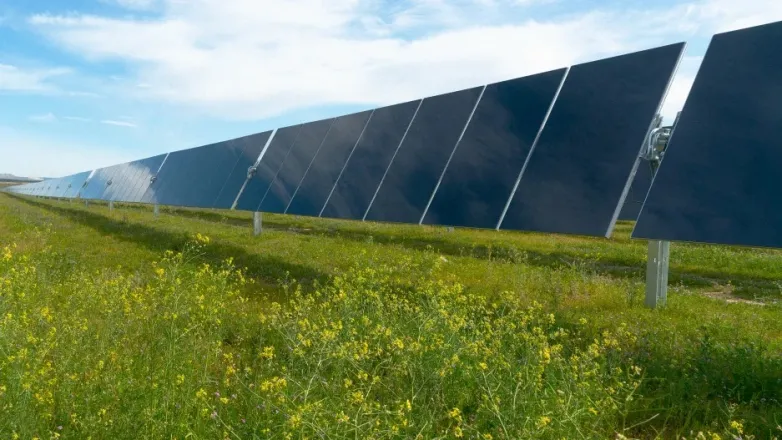This game-changing solar company recycles old panels right into brand-new ones
- The initial wave of photovoltaic panels is reaching the end of their helpful lives. Now they can become brand-new photovoltaic panels as opposed to trash.

The international surge in solar power is assisting rapidly reduced the cost of photovoltaic panels and diminish energy's carbon impact, with around 70,000 photovoltaic panels being mounted every hour by 2018, as well as an approximated 1.47 million photovoltaic panels in place by that year in the U.S. alone. However it also suggests that we'll encounter a huge stack of e-waste when those panels ultimately break.
By the early 2030s, as one large wave of solar panels is reaching completion of life, the International Renewable Energy Agency tasks that there could be as high as 8 million statistics tons of total solar panel waste. By 2050, that can jump to as much as 78 million statistics tons of collective waste. "We're considering an emerging waste stream which has the possible to head to pretty big volumes over the next years," claims Andreas Wade, who leads worldwide sustainability for First Solar, a photovoltaic panel producer that is tackling the issue with a round strategy.
At a recycling plant in Ohio, next to the business's manufacturing center, First Solar uses personalized technology to take apart and recycle old panels, recuperating 90% of the materials inside. It runs comparable recycling systems in Germany and Malaysia. Now, the holistic lifecycle method isn't typical among other solar producers. But Wade says that now is the time to consider the trouble. "Our go for solar is to help our clients decouple their financial development from negative ecological influences," he says. "So it is sort of a necessary point for us to attend to the renewable-energy-circular-economy nexus today and not 20 years from currently."
The E.U. requires solar manufacturers to reuse products, and also comparable regulations remain in the operate in some other parts of the world, consisting of Japan and India. In the U.S., up until now, just the State of Washington needs solar panel recycling; the majority of old photovoltaic panels in the country end up in garbage dumps currently, squandering valuable products such as silicon and risking the spread of toxic parts such as lead.
By reusing materials, the overall ecological effect of each panel drops. The original solar panel, Wade says, may last 30 or perhaps 40 years. If 95% of the semiconductor material can be recuperated and returned in a brand-new panel, and also the cycle remains to repeat, the original product could stay in use as long as 1,200 years. Presently, due to the big demand for solar panels and the reality that numerous have not yet reached the end of their life, the overall percent of recycled material in the firm's new panels is low. Yet it will expand with time.
As the market advances, recycling options are likewise likely to grow. At industrial-scale solar ranches, Wade forecasts that mobile recycling devices will certainly begin to be made use of, aiding reduce the obstacle of shipping heavy, glass-covered solar panels to a remote recycling plant. (Current transportation costs can be so large that some in the sector say that it can be difficult to make reusing cost-effective.).
Currently, some large purchasers of solar power are starting to believe even more concerning solar's total influence. When GM recently authorized an agreement to get power from a new solar development as part of its initiative to transfer to 100% renewable resource, for instance, it chose to work with First Solar since the firm was working with the sustainability of the entire supply chain.
Also read

